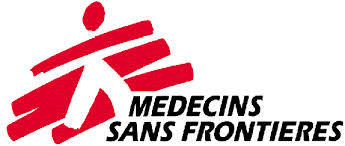REDISSE Project - TOR for Social Safeguard Officer
CLOSING DATE: 11TH MAY, 2019
REGIONAL DISEASE SURVEILLANCE SYSTEMS ENHANCEMENT (REDISSE) PROJECT (P159040)
TERMS OF REFERENCE FOR THE ENGAGEMENT OF A SOCIAL SAFEGUARD OFFICER TO SUPPORT THE PROJECT COORDINATING UNIT (PCU)

1.0 Background Information
The World Bank is providing funding to all West African countries through the Regional Disease Surveillance Systems Enhancement (REDISSE) project to strengthen the weak Human Health, Animal Health, and Disaster Response Systems, improve the preparedness of the region to handle future epidemics and thereby minimize the national, regional, and potential global effects of such disease outbreaks.
a. Project overview
The board of the World Bank (IBRD-IDA) approved REDISSE II project on March 1, 2017 and expected to run from 2017 to 2023. The project is targeted at supporting initiatives in five thematic areas across the human and animal health services.
These areas include: - (1) Surveillance and information systems; (2) Laboratory strengthening; (3) Preparedness and emergency response (Includes a “zero dollar” emergency response component); (4) Human resource management (public health workforce); (5) Institutional Capacity Building, Project Management, Coordination and Advocacy.
Project Development Objective
The project’s development objective (PDO) is to strengthen cross-sectoral and regional capacity for collaborative disease surveillance and response in West Africa
Project location
REDISSE will be implemented in five countries: Guinea, Liberia, Nigeria, Senegal and Sierra Leone. This consultancy covers Nigeria only.
Project Components
The REDISSE Project has five components as follows:
Component 1: Surveillance and Information Systems:
- Support the enhancement of national surveillance and reporting systems and their interoperability at the different tiers of the health systems.
- Support national and regional efforts in the surveillance of priority diseases (including emerging, re-emerging and endemic diseases) and the timely reporting of human public health and animal health emergencies in line with the IHR (2005) and the OIE Terrestrial Animal Health code.
Component 2: Strengthening Laboratory Capacity:
- establish networks of efficient, high quality, accessible public health, veterinary and private laboratories for the diagnosis of infectious human and animal diseases, and
- Establish a regional networking platform to improve collaboration for laboratory investigation.
- Address critical laboratory system weakness systems weaknesses across countries, fostering cross-country and cross-sectoral (at national and regional levels) collaboration.
Component 3: Preparedness and Emergency Response:
- Support national and regional efforts to enhance infectious disease outbreak preparedness and response capacity.
- Support (i) updating and/or development of cross-sectoral emergency preparedness and
- response plans (national and regional) for priority diseases and ensuring their integration into the broader national all-hazards disaster risk management framework; (ii) regular testing, assessment, and improvements of plans; (iii) expansion of the health system surge capacity including the allocation and utilization of existing pre-identified structures and resources (at the national and regional level) for emergency response, infection prevention and control.
Component 4: Human resource management for effective disease surveillance and epidemic preparedness:
- Cross-cutting given that animal and human health workers form the backbone of Disease Surveillance (Component 1), Laboratories (Component 2) and Preparedness and Response (Component 3) ensure effective human resource management aims at bringing the right people with the right skills to the right place at the right time.
b. Implementation arrangements
To achieve this, through novel collaborative arrangement, the Federal Ministry of Health (represented by the Nigeria Centre for Disease Control (NCDC)) will be working with the Federal Ministry of Agriculture (represented by the Department of Veterinary services) alongside the Federal Ministry of Environment (FMEnv) to deliver on the targets of the project.
The Project Coordination Unit (PCU) comprising of qualified staff with demonstrable experience is being constituted.
In addition to qualified staff selected and deployed to the PCU, Nigeria Centre for Disease Control will recruit and engage the services of a Social Safeguards officer with suitable qualifications and experience to deliver on responsibilities earmarked for the successful applicant in this term of reference.
2.0 Objective of the Assignment
The aim of recruiting the Social Safeguards officer is to:
- support the Project Coordinating Unit (PCU) and strengthen capacity of the Nigeria Centre for Disease Control (NCDC) as it relates to Social Safeguards matters.
- support the implementation of social safeguard issues such as implementation of Environment and Social Management Plan (ESMP), GRM, gender and disability inclusion with a view to mitigating the adverse effects of project activities on the communities.
3.0 Duties and Responsibilities
The Social Safeguard officer’s responsibilities shall include but not limited to the following:
- Develop Social Safeguards management plan for REDISSE project sites, particularly for Environment and Social Management Plan(s) and or social inclusion plan(s) as may be required.
- Support the planning and implementation of social safeguards in line with the Environmental and Social Management Framework (ESMF);
- Support the implementation of the Beneficiary Feedback and Grievance Redress on the project;
- The safeguards officer must predict the likely negative impacts of social problems and recommend appropriate safeguard measures working with the environmental safeguards specialist.
- Advise and support the Project for smooth Stakeholders relationship and involvement.
- Support the Project to develop a broad framework for the engagement of stakeholders, creating awareness and educating them on the project objectives and implementation processes.
- Contributing to the development of TORS for relevant site-specific instrument.
- Review environmental safeguards documents prepared by consultants to ensure compliance with relevant safeguards policies of the Nigerian Government and the World Bank;
- Undertake field visits to ascertain if sub-projects are implemented in an environmentally and social sustainable manner;
- Ensure that environmental and social management clauses are inserted into bidding/binding contract documents to ensure compliance.
- Establish and maintain project-level grievance redress mechanisms in line with the WB’s Grievance Redress Service (GRS) for communities and individual whilst ensuring prompt response and redress where necessary.
- Assist in the development and operationalization of the project wide grievance redress mechanism.
- Assist with training of all relevant stakeholders in the implementation of social and environmental development issues on the Project
4.0 Qualifications and experience
- A university degree to master’s level in Sociology/Anthropology/Social Development or related subject. At least 5 years’ experience as a senior social development professional preferably within the Health sector.
- Understanding of social assessment procedures, sustainable development and assessment; gender, health and education; socio-economic principles and techniques, and Nigerian Federal and State legislation is essential, particularly in relation to social issues.
- Experience in advocacy of social development, policy development, capacity building and production of training materials, and monitoring and evaluation is desirable.
- The Consultant(s) must have a working knowledge of World Bank operational safeguards policies gained through hands-on experience in the preparation and implementation of ESIAs/ESMPs etc.
- Excellent written and verbal communication skills in English is required
5.0 Expected deliverable
- Deliverable would depend on specific assignment as contained in the procurement plan approved by the World Bank.
- A monthly comprehensive report on all accomplished tasks during period of the assignment would be submitted to the Project Coordinator.
6.0 Supervision arrangements
The Social Safeguard Consultant will work closely with the Communication specialist of the REDISSE project under the supervision of the Project Coordinator.
7.0 Duration.
The services shall be full time for an initial period of one year. Renewal will be subject to satisfactory performance of the consultant and the requirements of the project.
8.0 Termination of Appointment
The appointment of the social Safeguards Officer can be terminated at any point with one month notice if the incumbent is found to be incompetent or if s/he carries out other activities that are found deleterious to the progress of the Project.
9.0 Payment
Payment will be in accordance with the payment schedule earmarked for such officer in the project.
Interested applicants should send their application to [email protected] on or before 11th May, 2019.



